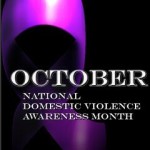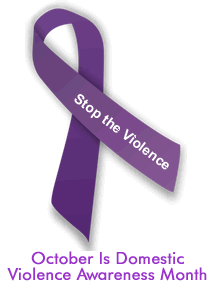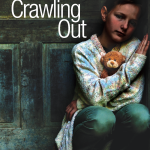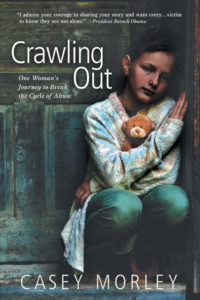Domestic Violence Defined:
According to CCADV (the Connecticut Coalition Against Domestic Violence, Inc.) Domestic Violence is defined as a coercive, controlling behavior that can include physical, emotional, psychological, sexual or financial abuse. Victims are left feeling scared, confused, dependent and insecure about their ability to  survive on their own, financially or otherwise. The children of a battered parent must contend with these same fears and realities. Domestic Violence is a pervasive, life-threatening crime that affects millions of individuals across the United States regardless of their age, economic status, race, ethnicity, religion, sexual orientation or education.
survive on their own, financially or otherwise. The children of a battered parent must contend with these same fears and realities. Domestic Violence is a pervasive, life-threatening crime that affects millions of individuals across the United States regardless of their age, economic status, race, ethnicity, religion, sexual orientation or education.
1 in 4 women have experienced severe physical violence by an intimate partner at some point in their life.
Signs of an Abusive Relationship:
Abusers use a variety of methods to control, intimidate and isolate victims, including:
- Stalking and harassment, such as following you or coming to your home or work uninvited.
- Physical violence, such as pushing, slapping or hitting
- Economic control, such as refusing to give you money or preventing you from working
- Being overly jealous about your relationships with others
- Disrespecting your family and friends, and keeping you from seeing or talking to them.
- Humiliating you in public
- Controlling means of communication, such as your phone or computer
Of Females killed with a firearm, almost two-thirds are killed by an intimate partner.
The Warning Signs of Domestic Abuse Victims:
According to the NNEDV (National Network to End Domestic Violence) victims of abuse may:
- Seem afraid or anxious to please their partner
- Go along with everything their partner says and does

- Check in often with their partner to report where they are and what they’re doing
- Receive frequent, harassing phone calls from their partner
- Talk about their partner’s temper, jealousy, or possessiveness
- Have frequent injuries, with the excuse of “accidents”
- Frequently miss work, school, or social occasions, without explanation
- Dress in clothing designed to hide bruises or scars (e.g. wearing long sleeves in the summer or sunglasses indoors)
- Be restricted from seeing family and friends
- Rarely go out in public without their partner
- Have limited access to money, credit cards, or the car
- Have very low self-esteem, even if they used to be confident
- Show major personality changes (e.g. an outgoing person becomes withdrawn)
Visit www.WomensLaw.org and take a brief quiz to help you determine if you’re in an abusive relationship.
Subtle Warning Signs of an Abuser:
Abusers tend to share many common behaviors, and use similar tactics to gain power and control over their partners.. They may:
- Insist on moving too quickly into a relationship
- Be very charming and may seem too good to be true
- Insist that you stop participating in leisure activities or spending time with family and friends
- Be extremely jealous or controlling
- Do not take responsibility for their actions and blame others for everything that goes wrong
- Criticize their partner’s appearance and make frequent put-downs.
Often the words and actions of an abuser do not match. It’s important to keep in mind any one of these behaviors may not indicate abusive actions – but it’s important to know the red flags and take time to explore them. Like victims, domestic violence abusers come from all backgrounds. They typically behave differently with others than they do with their partner. Abusers make it very difficult for victims to escape relationships. They are very good at making victims think that the abuse is their fault. Victims often believe that if they caused the violence, they can also stop it. Sadly, many survivors suffer from abuse for decades.
Cut it Out – Salons Against Domestic Abuse reminds us …..
While most perpetrators are men, most men are NOT perpetrators.
Often when people think of domestic abuse, they envision battered women being physically assaulted. But not all abusive relationships are outwardly violent. Many men and women suffer from emotional abuse, which is just as damaging but often minimized or overlooked. Many people think physical abuse is worse than emotional abuse. Physical violence may leave you with scars, but the scars of emotional abuse are just as real and run very deep. In fact, emotional abuse can be just as destructive as physical abuse—sometimes even more so.
GET IMMEDIATE ACCESS TO HELP BY CALLING:
888-774-2900
A 2010 study showed that 95% of survivors who sought assistance from their local DOMESTIC VIOLENCE AGENCY were more knowledgeable about planning for their safety and more hopeful about the future.
Statistics courtesy of CCADV (CT Coalition Against Domestic Violence)
 Post by: Casey Morley – “I have emerged from a life filled with abuse and chronicle my journey in my my book,Crawling Out, due to be published soon. I hope by sharing my story I can help other victims of domestic violence realize that they too, can start their own journey of crawling out – and that they don’t have to walk alone. I am also the owner of Casey’s Image Consultants, and a Certified M’lis Wellness Consultant offering Lifestyle Change Programs for detoxifying the body. I am dedicated to helping people improve their appearance and overall health from the inside out.”
Post by: Casey Morley – “I have emerged from a life filled with abuse and chronicle my journey in my my book,Crawling Out, due to be published soon. I hope by sharing my story I can help other victims of domestic violence realize that they too, can start their own journey of crawling out – and that they don’t have to walk alone. I am also the owner of Casey’s Image Consultants, and a Certified M’lis Wellness Consultant offering Lifestyle Change Programs for detoxifying the body. I am dedicated to helping people improve their appearance and overall health from the inside out.”





2 pings